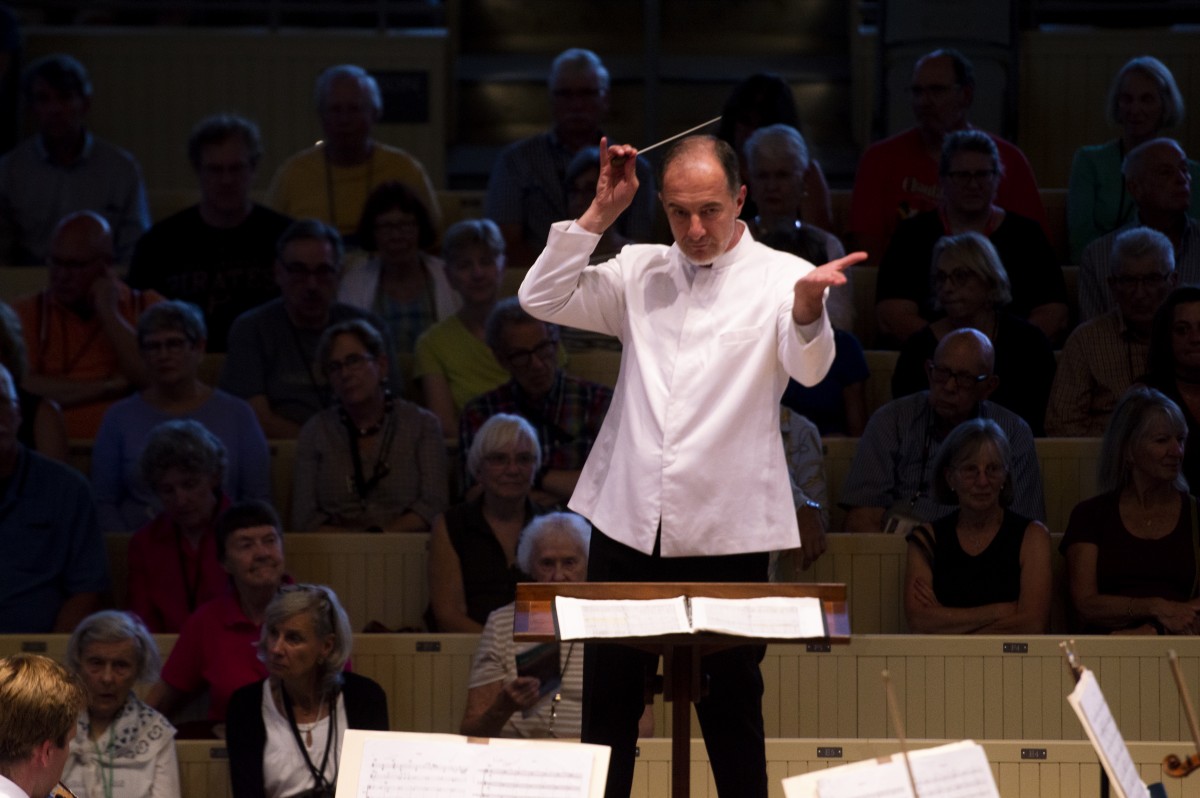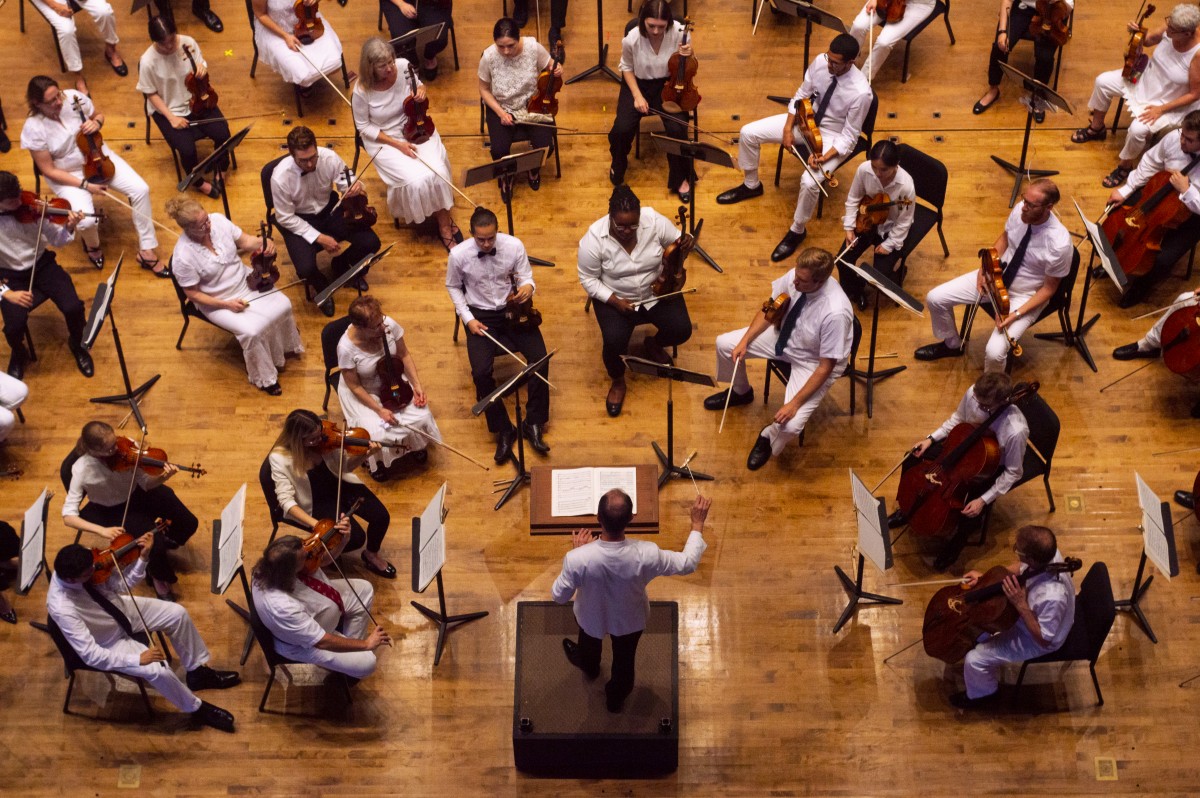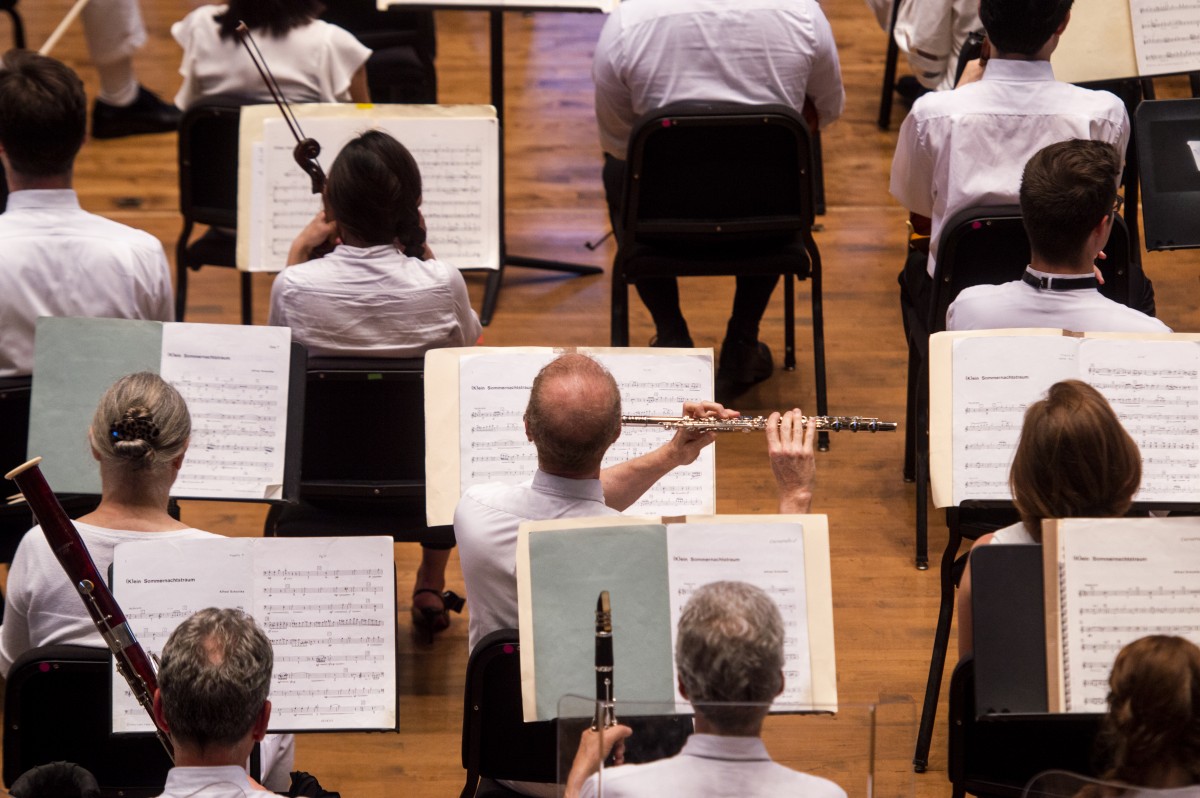Review by Andrew Druckenbrod:
Think of the volume of a typical orchestral fortissimo and then double it. Then double it again. Now you have a good sense of the decibel level inside the Amphitheater Thursday night. The first amplification came with Igor Stravinsky’s “The Rite of Spring,” one of the loudest works in the Western canon. The second was due to the combination of the Chautauqua Symphony Orchestra and the Music School Festival Orchestra under the baton of Rossen Milanov.
The count was 164 onstage in a piece that already calls for heft, including multiple bass drums, timpani and eight horns. The musicians were elbow-to-elbow but not cramped, a reminder of how important it is that Chautauqua Institution built the new Amp. The dual concert is a significant part of the School of Music season — yet another step into professional life for the students — and the facility, with its expanded stage, did not hinder it.
Anyone who knows the level of the music students here is aware they also wouldn’t hold the concert back. And that was the case, with ensemble, pitch, phrasing — anything you want — in fine form. It was in such good taste that Milanov recognized Maria Fuller, the MSFO’s conducting fellow this summer, for her work preparing it for the concert, aided in this effort by its music director, Timothy Muffitt. But I chuckled thinking about what those in the audience who neither knew this, nor the deliberately off-kilter score of Alfred Schnittke’s “(K)ein Sommernachtstraum” that opened the concert, thought of the performance.
Composed in the mid-1980s, the work is on one level a metaphor for lost innocence. An inviolate pseudo-Mozartean theme meets a buzz saw that sends splinters of dissonance everywhere until it returns, troubled and transformed, at the end. After the dainty theme arrives in a trio of piano, violin and flute, it fractures into what seems like the out-of-sync, out-of-tune jangle of an elementary orchestra.
“The quality of the student musicians at Chautauqua isn’t what it used to be …” If that misguided thought actually occurred, it would have been immediately recanted in the superb rendering of “The Rite of Spring” that followed. Stravinsky’s music for the ballet by Sergei Diaghilev’s Ballets Russes, in 1913, may not shock like it did a century ago, but its story does. Here, Schnittke’s lost innocence is replaced by the loss of an innocent, as the “Rite” is an imagined virgin sacrifice in a pagan ceremony. Stravinsky didn’t portray this in mythical terms, but exposed its brutality, one very soon to be matched in the trenches of World War I.
Awash with strident playing and ground-pounding rhythms, “Rite” is a fiendishly difficult work. Milanov often played the role of a marching band conductor, although he wisely held back the full force of the orchestra early on to allow for intensification as it progressed. The musicians, with students and professionals sharing each desk, attacked the work’s almost capricious accents with precision and its walls of sound with clarity. The percussion and timpani players admirably led from the back in the most cacophonous moments. The strings, handling plenty of forceful down bows, were smooth and cohesive.
But one measures the success of a “Rite” performance in its quieter episodes. Here, soloists and sections, especially the horns and woodwinds, were on form and Milanov had space to craft phrases and bring out color. It all began with bassoon player Jeffrey Robinson’s glowing tone as he made quick work of the opening solo.
Guest critic Andrew Druckenbrod is a lecturer in the Department of Music at the University of Pittsburgh and the former classical music critic of the Pittsburgh Post-Gazette. He has contributed to many music publications, including Gramophone, BBC Music and Opera News.







